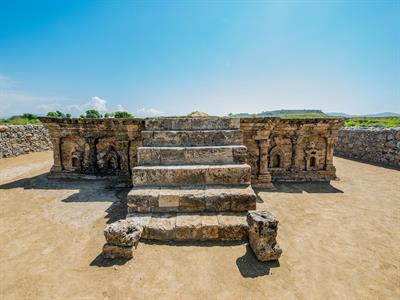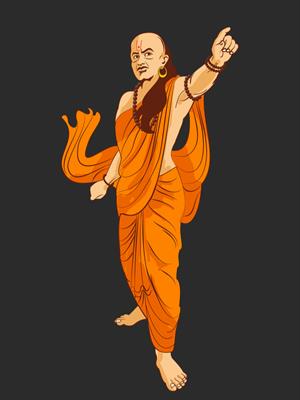PDF chapter test TRY NOW
TAKSHASHILA OR TAXILA:
Takshashila became famous as a place of learning due to its teachers' expertise. Among its noted pupils were the legendary Indian grammarian, Panini. He was an expert in language and grammar and authored one of the greatest works on grammar called Ashtadhyayi. Jivaka, one of the most renowned physicians in ancient India, and Chanakya (also known as Kautilya), a skilled exponent of statecraft, both studied here. Students came to Takshashila from Kashi, Kosala, Magadha and also from other countries in spite of the long and arduous journey they had to undertake.
ROLE OF THE TEACHER:
Teachers had complete autonomy in all aspects from selection of students to designing their syllabi. When the teacher was satisfied with the performance of the students, the course concluded. He would admit as many students as he liked and taught what his students were keen to learn. Debate and discussions were the primary methods of teaching. Teachers were assisted by their advanced level students.
Explanation:
The University of Taxila was established on the eastern banks of the Indus river. Although it belonged to India during pre-Independence, it is now located in Taxila, Pakistan. It is the seat for Buddhist philosophy and doctrines. The Jataka tales had references to this University in some of its stories, as it was solely based on Buddhist doctrines. But the earliest mention of the University was in Valmiki's Ramayana, as it is believed that the city of Taxila was established by Bharata, the brother of Lord Ram. It can be traced back to the early 800 BCE. Taxila or Taksha is short for Takshashila. It is named after the Taksha's rock cut in Ancient Northern India. Takshashila means 'City of cut stone'. It was designed as the Wealthiest place of that time, as it was rich in resources.

Taxila University
Scholars from all over the World, especially Kashi, Kosala, Magadha, attended the University to learn various art forms and religious scriptures. They also learnt science, law, medicine etc. The curriculum consisted of 68 elective courses, including philosophy, law, statecraft, defence, warfare strategies, grammar (several languages), the 18 arts (music, dance, fine arts, etc.), mathematics, astronomy, astrology, plants & herbs, medicine (Ayurveda, Ayurvedic acupuncture, etc.), and surgery. Some of these, such as medicine, were taught for up to seven years before graduation. It was also known for 18 shilpas or rock cuts which were studied and researched exclusively. Taxila was destructed by the Huns in the early 5th century CE.
It is an important archaeological site and the UNESCO declared it to be a World Heritage Site in \(1980\). A lot of Taxila's pupils went on to become famous in their fields. Panini, a legendary Indian grammarian, was an expert in language and grammar and authored one of the greatest works on grammar called Ashtadhyayi. Jivaka, one of the most renowned physicians in ancient India, and Chanakya (also known as Kautilya), a skilled exponent of statecraft, both studied here. Teachers had complete freedom to choose their students, design curriculum based on individual preferences and decide on when the course would end. Senior students assisted the teachers and learning took place with the help of discussions and debates.

An illustrated picture of Chanakya
Words with difficult meaning:
| S.No | Words | Meaning |
1 | Curriculum | The subjects that are taught in a school, college or university |
2 | Destruction | To destroy something, to fall apart |
3 | Autonomy | Freedom to act on one’s will |
4 | Statecraft | The skill of governing a country |
5 | Expertise | A high level of special knowledge or skill |
Reference:
National Council of Educational Research and Training (2008). It so happened. Ancient Education System of India (pp. 89-97). Published at the Publication Division by the Secretary, National Council of Educational Research and Training, Sri Aurobindo Marg, New Delhi.
